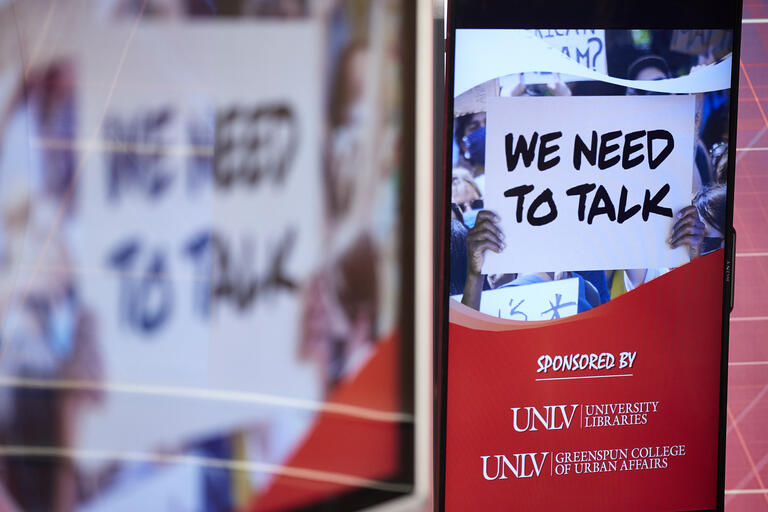Life sciences professor Allen Gibbs has a contagious curiosity about life, in every sense of the word.
He has studied deep sea fish and life under high water pressure. He has researched “anhydrobiosis,” which is life without water. Most recently, he and his students have studied the life of the fruit fly, specifically the effects of obesity on the tiny creatures, which he discusses enthusiastically.
“What we find from fruit flies is that 70 percent of their genes are the same in humans, and 50 percent of disease genes in humans are also in fruit flies,” Gibbs said. He noted fruit flies in his lab are extremely obese. “And they exhibit some of the same traits as obese humans: inactivity, poor mobility, cardiac dysfunction, and disrupted sleeping patterns.”
This research recently caught the attention of local and national media, including high-profile science magazines. The research, along with his track record of teaching and public engagement, earned Gibbs one of the two 2019 UNLV Top Tier Awards, which recognize work that meets the university’s gold standard for research, education, and community impact.
Gibbs joined UNLV in 2005, and in that time he has published 32 primary research studies in physiology, ecology, and evolution journals. He has served as chair of the Graduate Admissions Committee of UNLV’s School of Life Sciences for four years, and he has mentored about 75 undergraduate students who have been directly involved in his research. UNLV’s Graduate and Professional Student Association in 2011 named him Mentor of the Year, and since then, Gibbs co-developed a new graduate core course for the School of Life Sciences to help prepare first-year students for success in graduate school and beyond.
Push for Diversity
“Dr. Gibbs’ mentoring record is especially impactful when considering he has also been a strong supporter for increasing diversity in science by engaging underrepresented groups in STEM,” said Andrew Andres, interim executive associate dean in the College of Sciences, who supported Gibbs’ nomination for the Top Tier Award.
Gibbs said supporting diversity among students in science has been a career-long effort, noting the very first student he mentored at the University of California, Davis in the early 1990s was the son of a Native American father and Mexican mother. That student went on to earn a Ph.D. in forestry. At UNLV, two-thirds of undergraduates in Gibbs’ lab are women, and more than half are from underrepresented minorities.
“I strongly encourage my students to apply for fellowships to support their work, and I typically have two to four summer students with their own funding,” he said.
Regardless of where they come from or their background, Gibbs says his biggest hope for students is that they come away from his classes with a strong sense of what science research is and whether it will be their lifelong pursuit. To this end, Gibbs says mentoring is critical, including encouraging peer mentorship, where undergraduates can learn from working with and watching graduate students.
A Beacon
Sharing his passion for science is not something Gibbs reserves for campus.
In 2015, Gibbs co-founded Science Café Las Vegas, an open meeting the first Wednesday of every month at McMullan’s Irish Pub. The meetings are geared toward bringing science discussions to the public of Southern Nevada, and involve students, faculty, local scientists, and the community.
“Science Café has been very effective in communicating UNLV’s research efforts, and serves as a beacon to spotlight the importance of the university to the general public,” Andres said.
For Gibbs, the monthly meetings are another way to keep science fun and accessible.
“We usually have a 10- to 15-minute presentation and then talk about the research,” Gibbs said. “We get people who come regularly, and people who walk in by accident and stay. We also have a trivia contest with fabulous prizes.”



